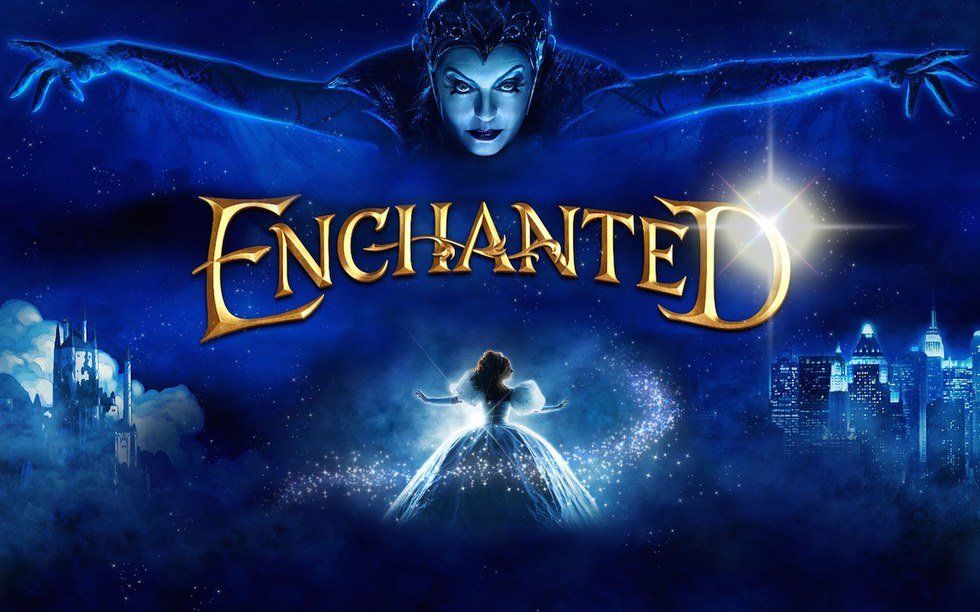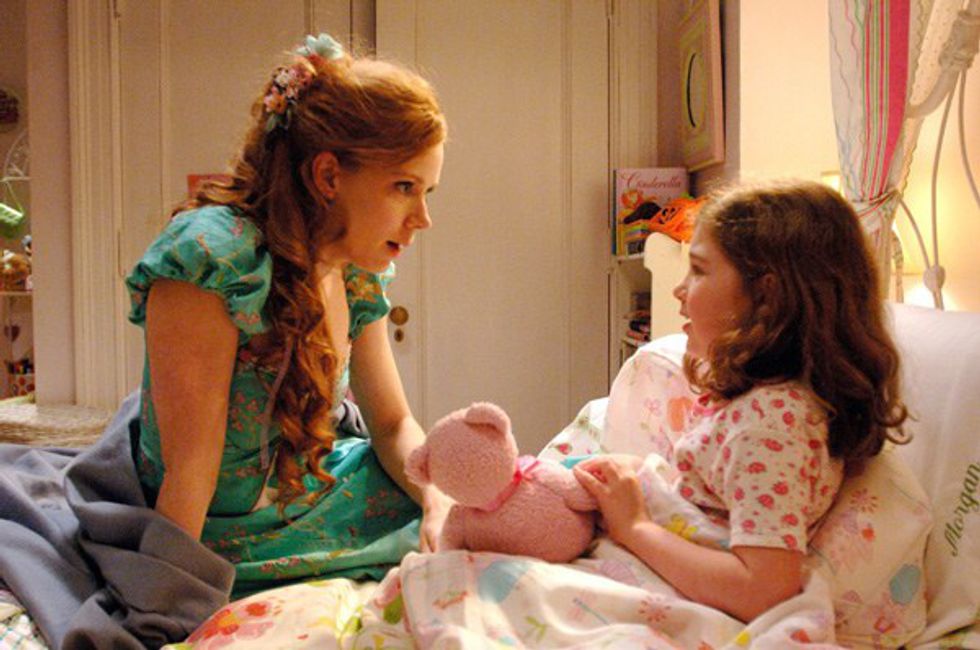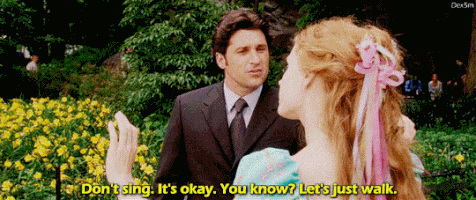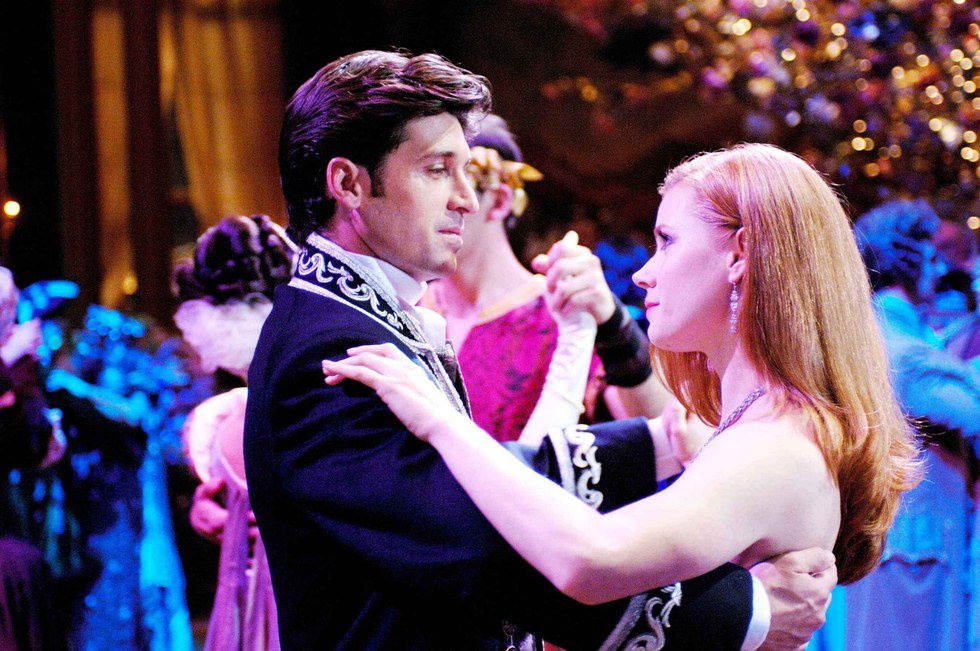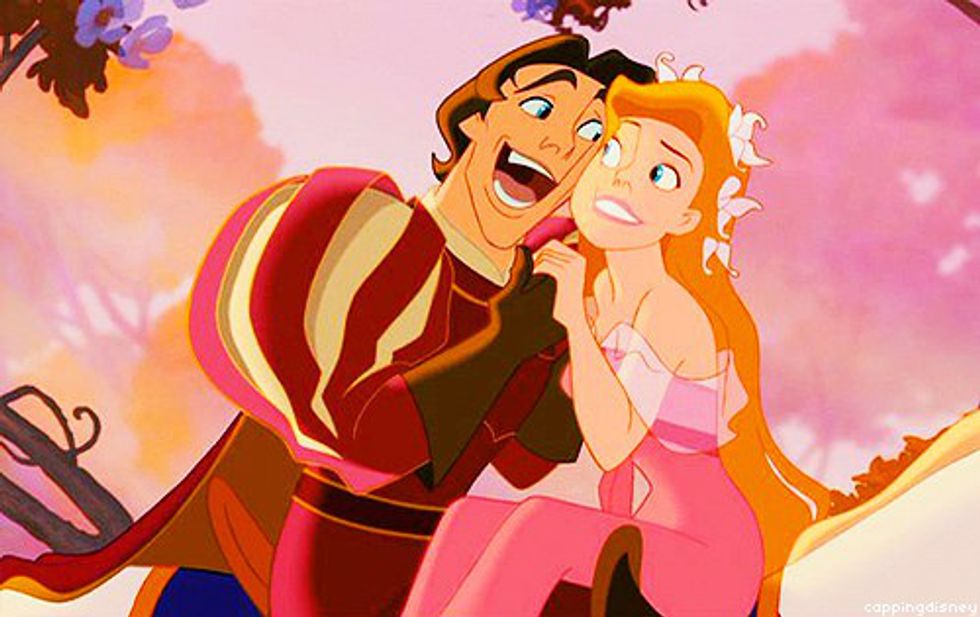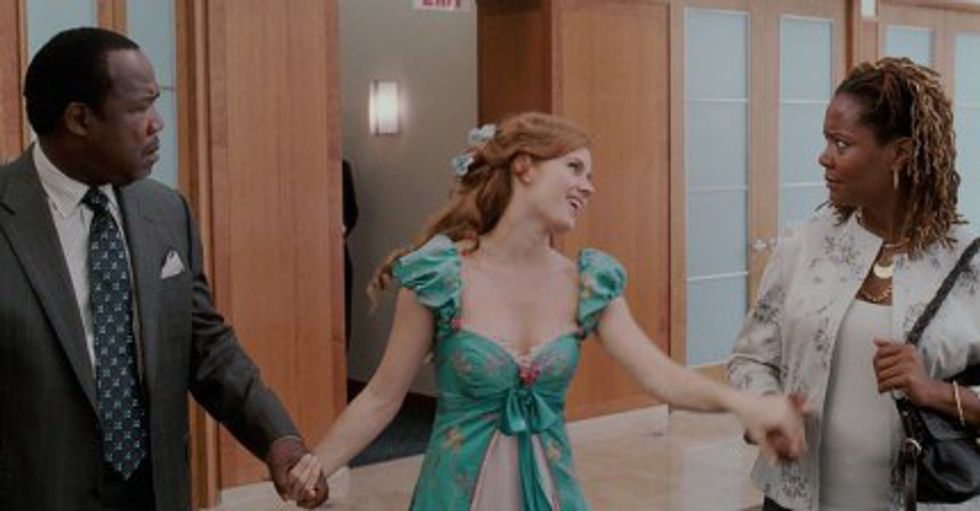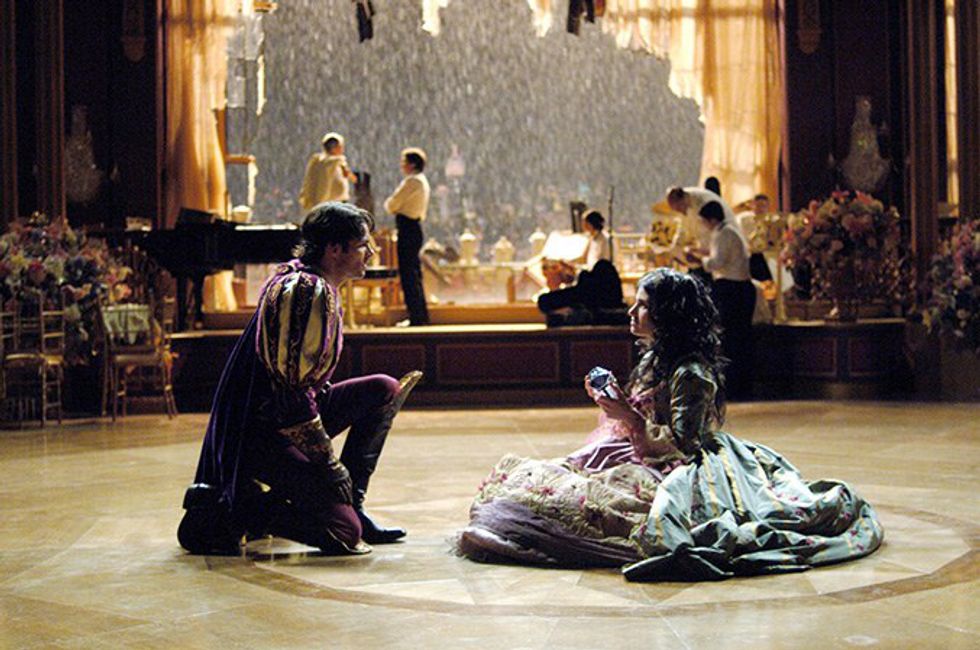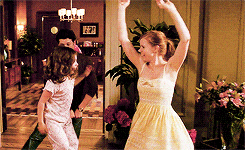This past Monday, my friend Cassie and I indulged in some much-deserved Disney binging and settled on watching "Enchanted," the animated and live action film starring Amy Adams and Patrick Dempsey. The film takes a strange twist of fantasy and reality, as Giselle (Amy Adams) is forced into leaving her animated world and must try and find her way back from New York City before she misses her true love’s kiss.
Now, I’ll admit, even though I hadn’t seen this film since its release, which was nine years ago by the way! (I feel old), I still felt like my eight-year-old self sitting in the theater, giddy with excitement over another story of true love. As I belted along to the over-the-stop musical numbers and chuckled over the pop culture references, I couldn’t help but once again fall under the spell (no pun intended) that was the unrealistic expectations of love and relationships, something that my childhood self always desired.
Before I get any negative comments regarding that I’m a hater for analyzing a kid’s princess film and taking out all the fun, please understand that I love this film, even with its flaws. What I especially like is that it pokes fun at the unrealistic, accepted parts of fairy tales that no one questions.
One example is when Giselle begins to sing in the middle of Central Park with some street performers, to which Robert (Patrick Dempsey) becomes embarrassed and encourages her to stop for she is attracting a crowd as well as hundreds of performers. Now I don’t know about you, but spontaneous, unplanned choreographed dance doesn’t suddenly start where I come from. This particular film grandly addresses the theatrics that go along with fantasy and fairy tale films alike, and does a solid attempt at showing the audiences the pros and cons of both “true love” and realistic, probable love that exists in our reality.
Giselle is made to be the most stereotypical of princesses, from her awe-inspiring voice to her annoyingly high amount of optimism. In her world, true love comes with the call of a song, and without any hesitation, ends with marriage and a fate sealing kiss. Opposite of that, Robert is a divorce lawyer whose wife left him and his daughter, giving him the “safe” preference when it comes to love, planning every step and never giving himself the freedom to wish that things will work out in the end.
Unsurprisingly, the aspect of “opposites attract” brings the two together in love, showing the audience that no matter how different two people may be, there is still a possibility for something more. That just doesn’t happen in the real world, as much as we’d like it to.
The conflicting personality tactic is also used in a positive light in the film, with Giselle and Edward’s (James Marsden) relationship. Back in Andalasia, Edward saved Giselle from a giant and a high fall, and without even knowing his name, she agrees to live happily ever after, since that’s what she’s always known as the one thing to make her happy. However, Robert convinces her that once she is “saved," that she might try out a date with her prince charming to get to know him better before they end their one-day engagement.
Giselle takes his advice once Edward and her are reunited, and she later learns that despite what she used to think, she no longer loves Edward and his dramatics and instead falls for Robert. This relationship shows that through advice of someone who literally deals with people’s failing connections for a living, Giselle was able to gain some knowledge that helped her strengthen her self esteem and register what she deserves in life. Now this character development I can get behind!
Another instance of unrealistic love expectations in the film is the idea of breaking up and getting back together/moving on quickly. The first instance of this is towards the beginning of the film, when Robert is working a case dealing with two people who clearly hate each other and are only still arguing because they both want possession of their pet.
Even though the couple clearly despise each other and are spending lots of money to make sure they never interact again, Giselle comes sweeping in anyway, convincing the husband that he should be lucky to have such a beautiful wife, one with “sparkling eyes."
Of course, Giselle’s “persuasive” ways are enough to convince the couple to go on a date and rekindle their love, much to Robert’s dismay (I’d be mad if I wasn’t getting money too!) I understand that this is a children’s film, but I feel like if I were a young kid with divorced parents, I would have tried to use this logic to get them back together. I’m not sure if many kids would maybe pick up on that, but there’s not a doubt in my mind that at least one kid had this plan of attack cross their mind.
Another relationship that has the unrealistic breakup/makeup story line is the relationship of Robert and his long time girlfriend Nancy (Idina Menzel). The couple, when first introduced, had been dating for five years, and Robert was planning to propose. Although the relationship gets rocky when Giselle arrives, it seems odd to me that their relationship falls apart within the matter of days. First, after their romantic afternoon in Central Park (which Robert walks out of work for, how is he not fired by now?), he begins to admire Giselle for her positivity, innocence, and for quite a large chunk of the film, ditsy personality.
Nancy, on the other hand, is a successful fashion designer with her own business who just wants a little more romance and spontaneous activity. For her, Robert is too “safe," and she has her own life to be routine with. Second, Robert continues to court Giselle around in his life, teaching her the ins and outs of relationships, which may seem a little too serious of conversation between two strangers.
Finally, Giselle starts to invade Robert’s brain, making him reconsider his relationship entirely. Nancy picks up on this change in behavior when Giselle and Edward arrive at the “ball” in the Empire State Building, where Robert can’t tear his eyes away from the red-headed maiden. Eventually, Nancy (to my extreme disappointment) accepts the fact that Robert no longer loves her and even lets him kiss Giselle in front of her (in order to save her life, I know, it was a dire situation).
It just seems so odd to me that after five years of being together, Robert was so quick to fall in love with someone else, and Nancy was able to accept that and move on (and spontaneously marry Edward) within the matter of hours. Maybe lying underneath this quick closing were more deeply rooted problems that the couple had, but I guess love works in mysterious ways.
I could go on and on about other ways that this film perpetuates love, especially through the aspect of two minor characters’ abusive relationship, but then this would become an analytic essay and not an article for brief enjoyment.
However, I do believe that it is important that even though many little kids don’t look as deep into the hidden messages and plotlines of films that teens and adults do, it still is important to not let younger generations accept unrealistic standards for themselves. Forcing children to act or accept things in a certain way can do much more harm than help, and we have to push away from that in order to help them become the best people they can be.
From this film in particular, I think it is important that children focus on Giselle’s inner growth from a dependent, lost girl into a successful, self-confident person who still holds onto the imagination and magic she had all along. If we can encourage kids to aim to be like those kinds of princesses, I think we’re in for a lot more success from our future generations.



